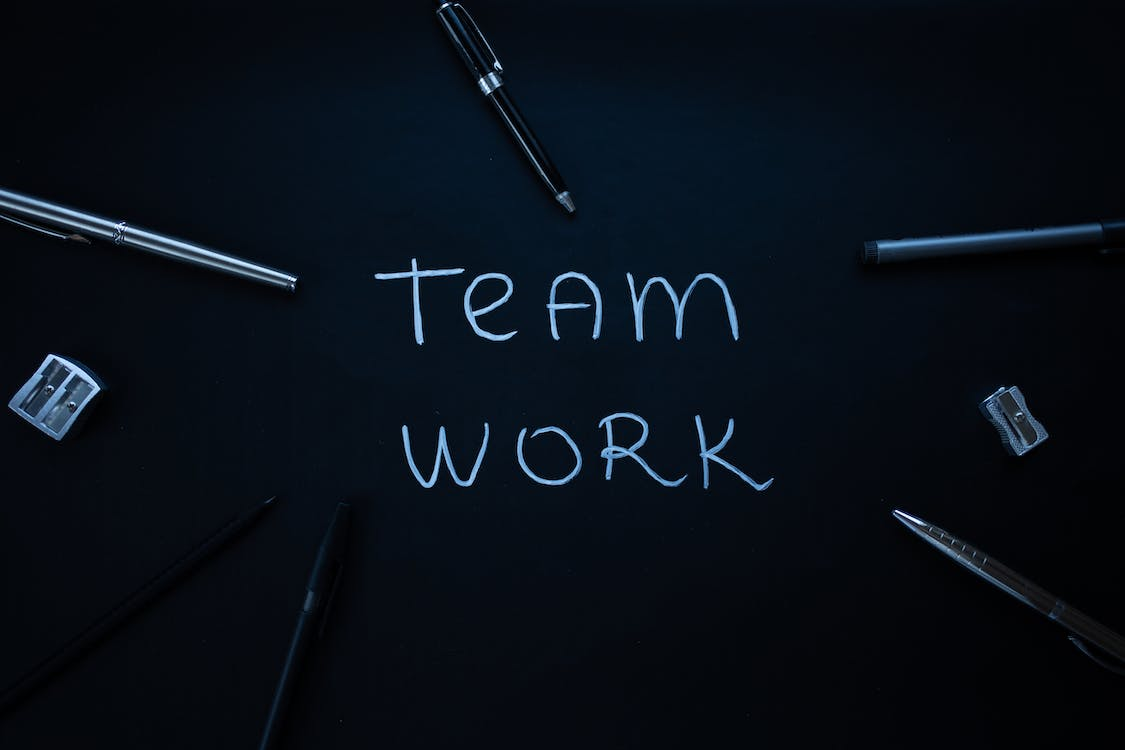
We’re setting sail on an illuminating journey to construct your ultimate vessel—a resilient team that not just survives, but thrives. Imagine your team as a ship sailing through turbulent waters. Will it capsize at the sight of the first tempest, or will it ride the waves, adapt, and emerge stronger on the other side? That’s the power of resilience, and it’s not just a handy skill—it’s the lifeboat, compass, and North Star rolled into one for any organization navigating the choppy seas of today’s business world.
Building resilient teams is not just a buzzword; it’s a mission-critical component of a successful organization, especially in today’s rapidly evolving business landscape. Navigating disruptions, adapting to new market conditions, and thriving amidst relentless competition are the attributes that distinguish an ordinary team from an extraordinary one. And extraordinary is what we’re aiming for—as should you.
Amidst technological disruptions, changing market conditions, and an increasingly competitive environment, teams that can adapt, cope, and not just survive but thrive in the face of challenges are the ones that set organizations apart from the rest. This comprehensive blog is your ultimate guide to achieving exactly that. This isn’t merely about weathering storms—it’s about navigating through them with finesse and coming out stronger on the other side.
From unraveling the intricacies of team dynamics to offering actionable strategies for implementing effective coping mechanisms, we’re diving deep into the art and science of resilience in the workplace. So, if you’re committed to elevating your team’s performance to the next level, read on.
In the intricate ecosystem of a modern organization, resilience serves as a cornerstone for success. More than just a quality to be admired, resilience is an essential trait that differentiates average teams from exceptional ones. This is not merely about the capability to weather the storm; it’s about turning that storm into a learning opportunity and harnessing its power to propel forward.
Resilient teams don’t just survive challenges; they welcome them as catalysts for innovation, growth, and improvement. In a corporate setting where the only constant is change, a resilient team becomes an organization’s best defense and most potent weapon. They’re better equipped to handle challenges, recover from failures, and adapt to unforeseen changes—making them invaluable assets in the fast-paced world we navigate today.
It’s often said that a team is a reflection of its leadership, and when it comes to building resilience, this holds particularly true. Leadership isn’t just about steering the ship; it’s about ensuring that the entire crew is capable of weathering storms and reaching the destination stronger than before. Leaders have a fundamental role in setting the tone for a culture that doesn’t just cope with adversity but thrives in it.
Corporate motivational speakers have long recognized the crucial role that leaders play in fostering resilience. Take Steve Gilliland, for instance—a top business speaker, accomplished author, and savvy businessman who emphasizes that resilience isn’t a solo endeavor; it’s a collective one. The onus is on leaders to ensure that resilience is cultivated not just within individual team members but is embedded into the DNA of the entire organization.
Gilliland’s philosophy? Create a culture where failure is a pit stop on the journey to success, challenges are embraced as opportunities, and adaptability is as celebrated as success. This means creating an environment where failure is seen not as a dead-end but as a detour on the road to success, where challenges are viewed as opportunities, and where adaptability is celebrated.
Leaders like Steve Gilliland provide the compass. They remind us that resilience is a collective trait woven into the fabric of an entire organization. Leadership isn’t merely about steering the ship through calm waters; it’s about building a crew that thrives in choppy seas.
Think about a well-oiled machine; every part knows exactly when and how to move. This high level of precision comes from perfect synchronization, which is only possible with clear communication. Just like those machine parts, each team member has a role to play, and it should be clear what is expected of them and how their work impacts others. This clarity can only come from effective communication.
As many professional speakers, including famous motivational speakers like Steve Gilliland, often stress, the bedrock of any successful team is its ability to communicate openly and effectively. Clear communication allows for quick problem-solving, swift conflict resolution, and, most importantly, fostering a culture where ideas are openly shared and discussed.
It’s not just about talking; it’s about engaging in dialogue that moves the team forward, filters out misunderstandings, and enhances productivity. When everyone knows what’s going on, each member actively participates in the team’s resilience, ultimately contributing to its success.
In a world that often glorifies personal achievements, the power of collaboration can sometimes be overlooked. However, the success of any project in a corporate environment is usually the result of a team effort. Emphasizing collaboration over competition doesn’t mean individual accomplishments shouldn’t be celebrated; rather, it’s about recognizing that those accomplishments are part of a broader tapestry.
Imagine a relay race where every runner is trying to be the star, holding onto the baton for too long, or trying to outpace their teammates. The result would be chaos. In the same way, a work environment that promotes competition over collaboration will find its projects disjointed, and its team members disconnected.
Fostering a collaborative environment nurtures trust, mutual respect, and a collective focus on the team’s objectives. When the team understands they are all in it together, they are more likely to share resources, offer help, and, most importantly, stand together in times of adversity.
This unity is what transforms an average team into a resilient one. Such a culture doesn’t just happen; it’s cultivated intentionally. This is where the role of leaders, including those who are top business speakers and motivational and inspirational speakers like Steve Gilliland, becomes pivotal. They guide organizations to recognize the long-term benefits of collaboration, transcending the short-lived gains of individual competition.
In an ever-changing business landscape, standing still is the quickest route to irrelevance. That’s why the continuous professional development of team members is not just a nice-to-have but a must-have. It’s akin to giving your team an ever-expanding toolbox with which they can approach and solve challenges. Picture a toolkit that keeps expanding; that’s what continuous professional development does for your team’s resilience.
Frequent skill development, training sessions, and even attending talks by famous motivational speakers like Steve Gilliland can dramatically enhance the team’s collective skill set. Frequent skill enhancement—be it through in-house training or wisdom from motivational speakers like Steve Gilliland—bolsters your team’s arsenal for tackling challenges. The more competent the team feels, the more resilient they become.
It’s about creating a culture where self-improvement is valued and pursued aggressively, ensuring that when challenges arrive—and they will—the team is prepared to face them head-on. The impact of continuous professional development isn’t merely individual; it’s exponential, as empowered team members share their insights and expertise with the rest of the team.

The adage that we learn more from our failures than our successes holds true even in the most high-stakes corporate environments. Creating a culture that views setbacks not as debilitating career-halting moments but as invaluable learning opportunities is crucial for resilience. What if we rebranded failures as ‘lessons in disguise’? It’s not just about softening the blow of failure but about harvesting it for gems of wisdom that can propel the team forward.
Books like Enjoy The Ride by business motivational speaker Steve Gilliland emphasize just this, urging teams to see setbacks as stepping stones. They offer a new perspective on facing setbacks, emphasizing the importance of leveraging mistakes as stepping stones to future success. When fear of failure evaporates, what’s left? A more daring, innovative, and, yes, resilient team.
A team that’s not afraid of failing is a team that’s more willing to innovate, take calculated risks, and, ultimately, succeed.
The phrase “cool under pressure” didn’t become a cliché for no reason; there’s enormous value in maintaining one’s composure in stressful situations. However, stress management is more than just a personal attribute; it’s a skill that can be learned, honed, and shared among team members. Stress management is about equipping the team with psychological armor, providing them with the emotional and cognitive tools they need to navigate the high-pressure labyrinth that is the modern workplace.
Resilient teams often incorporate stress management techniques into their work culture. From mindfulness practices to time management workshops, strategies to deal with stress are as diverse as they are essential. When a team learns how to handle stress efficiently, it not only boosts productivity but also improves mental well-being, job satisfaction, and, you guessed it, resilience.
Consider stress as a fire; it can either consume you or be harnessed for energy. Resilient teams know how to manage stress to fuel their performance, whether through mindfulness practices or other techniques. And when the whole team knows how to keep stress at bay, they become a unit that’s hard to beat, a workforce that not just survives but thrives.
By incorporating these coping mechanisms into your team’s culture, you’re not merely patching holes—you’re building a fortress that can withstand challenges and come out stronger. And that’s what resilience is all about. When you armor your team with stress management skills, you’re essentially fortifying your organization’s resilience stronghold.
Building a resilient team isn’t a side project; it’s an ongoing, strategic investment that reaps long-term dividends in performance, employee satisfaction, and company reputation. The role of influential leaders in shaping this landscape cannot be overstated. If you’re a C-suite executive searching for a fresh burst of inspiration, an HR manager mapping out the next big training initiative, or a team leader looking to instill resilience among your ranks, the importance of motivational speakers like Steve Gilliland can’t be overlooked.
Not just a famous motivational speaker, Steve Gilliland is a celebrated author and businessman who stands out as a well-rounded expert guiding teams toward resilience. His cutting-edge e-books offer easily accessible solutions to complex organizational challenges, while his insightful audiobooks are a perfect companion for on-the-go professionals looking to hone their leadership skills. Gilliland’s exceptional books, like Making A Difference, are not just tomes of wisdom; they are groundbreaking blueprints for change, valuable for anyone looking to level up their team’s resilience.
His speaking engagements are transformative experiences, designed not only to galvanize individual ambition but also to provide organizations with comprehensive tools for systemic resilience. Having a motivational and inspirational speaker like him at your corporate event can significantly impact the morale and resilience of your team. Each episode of his captivating Motivation Bites series serves as an in-depth seminar, turning abstract concepts into actionable advice and revolutionizing corporate cultures one byte at a time.
If you prefer written content, Gilliland’s thought-provoking weekly blogs dissect and discuss essential aspects of modern business leadership. His contributions are not limited to the spoken or written word; they’re immortalized in impactful digital content, available for free on his comprehensive YouTube channel.
Don’t merely aspire to build a resilient team; equip yourself with the resources to make it a reality. Reach out now to book Steve Gilliland for your next corporate event and transform resilience from a catchphrase to a corporate mantra. With Steve Gilliland on your side, building resilience isn’t a challenge; it becomes an exciting journey toward organizational excellence. It’s time to stop contemplating and start acting—book Steve Gilliland today and set the wheels of resilience in motion. Because with him, resilience isn’t just a topic of discussion; it’s an actionable plan for success.
“Three distinctive keynote speeches and three standing ovations. The word sensational may not be enough to describe you properly! In the history of the National Business Aviation Association, you are the only opening general session speaker we have ever invited back three times.” – Eli Cotti, Executive Director